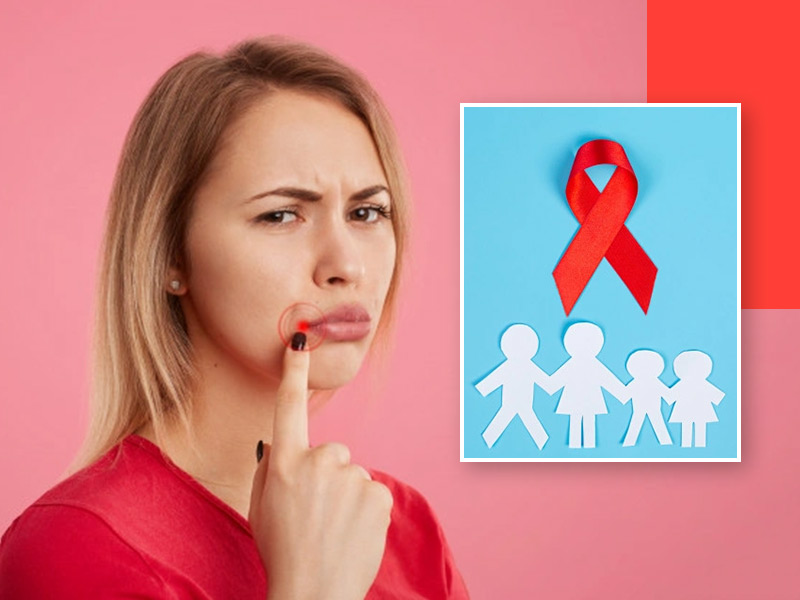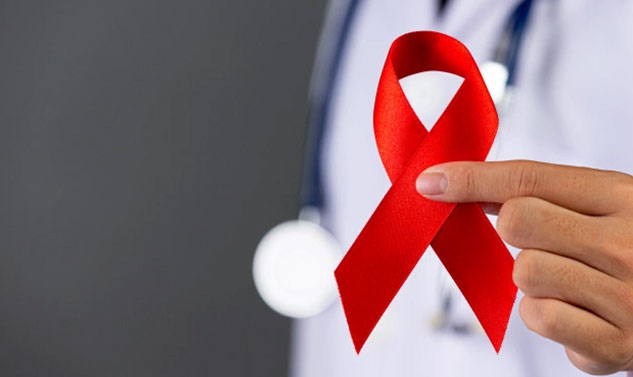
If a person starts to develop certain serious opportunistic infections or diseases – as a result of the damage caused to their immune system from the advanced stage 3 HIV infection – they are said to have AIDS (Acquired Immune Deficiency Syndrome). People with AIDS who don't take proper and timely medications live for about 3 years, or even less if they get another infection. But at this stage HIV can be treated. If you start taking medications for HIV, do not leave, stay on them and follow your doctor’s advice. Keep healthy habits so that you can live for a longer time. It is important to get the right treatment as soon as possible if you have advanced HIV infection (with AIDS-defining symptoms). With a proper treatment, there are chances that a person can recover from AIDS-related infections and diseases, and bring HIV under control.
Table of Content:-
The earlier you are diagnosed with HIV infection and start your treatment, the better it is for your health. Remember to never leave the infection untreated. You can lower the risk of getting opportunistic infections and stage 3 HIV infection by adhering to antiretroviral treatment and taking good care of your health. World Aids Day is marked on December 1 every year, to spread awareness to fight HIV. On World Aids Day 2021, Onlymyhealth editorial team spoke to Dr. Sameer Bhati – Director at Star Imaging and Path Labs, to know about the symptoms and different stages of HIV aids.
Symptoms and stages of HIV infection

The signs and symptoms of HIV (Human Immunodeficiency Virus) infection vary from person to person. It may even be possible of a person with HIV get to experience no at all for many years. The symptoms of HIV depend upon the stage on which you are. HIV infection happens in three stages. Without a proper treatment, it starts to worsen with time and gradually overpowers your immune system. However, with a proper treatment you can control your symptoms and stop them from progressing. That is why it is crucial to get a timely treatment as and when you test positive for HIV. Here are the symptoms and stages of HIV infection:
Stage 1: Acute Primary Infection Stage
Most people do not get to know when they have been infected with HIV. They may start getting the symptoms within 2 to 6 weeks after getting infected. This is the time when your immune system starts getting affected. This stage is known as Acute Primary HIV Infection. The symptoms are similar to other viral infections and often mistaken as those of flu. These symptoms typically last for one or two weeks and then go away. The signs of HIV Stage 1 include:
- Headache
- Sore throat
- Fever
- Fatigue
- Aching muscles
- Swollen lymph nodes
- A red rash that doesn't itch, usually on your torso
- Ulcers (sores) in your mouth, oesophagus, anus, or genitals
- Headache and other neurological symptoms
Also read: World AIDS Day 2021: Myths vs Facts About AIDS That You Should Know
If you start getting symptoms like these and have been in contact with someone who has HIV then you should go for an HIV test as soon as possible. Even if you do not have symptoms but have been in close contact with such a person then again you should get tested for HIV as soon as possible. Some medications will help you fight HIV and keep you from spreading the virus. They will keep your immune system healthy and won’t let your HIV infection get worse.
Stage 2: The Asymptomatic Stage

Once you have been through the acute primary HIV infection stage, you can start to feel better within a few days. In fact, for up to 10 or even 15 years your HIV infection may not cause any other symptoms (depending on age, background and general health). This stage is known as The Asymptomatic Stage.
However, the virus will still be there, infecting cells and multiplying itself. You can still pass on HIV during this stage. If left untreated, HIV infection will start to cause severe damage to your immune system over the time.
Also read: World AIDS Day 2021: Know About These 7 Stages Of HIV AIDS Infection
Stage 3: Symptomatic HIV Infection Stage
By the time you reach the third stage of HIV infection, known as the Symptomatic HIV Infection Stage, your immune system is severely damaged. At this point of time, there is very high risk of getting serious infections or diseases that your body would otherwise be able to fight off. Such infections are termed as opportunistic infections. This stage is known as Symptomatic HIV Infection Stage. Symptoms during the third stage of HIV infection can include the following:
- Being tired all the time
- Weight loss
- Persistent cough
- Chronic diarrhoea
- Night sweats
- Shortness of breath
- Regular infections
- Fever
- Bruises or bleeding
- Purplish spots on your skin that don’t go away
- Mouth and skin problems
- Neurological symptoms like confusion, memory loss, balance problems, behaviour changes, vision changes and seizures.
- Serious illness or disease
Thus, for World Aids Day 2021, these were the symptoms and stages of HIV infection by Dr. Sameer Bhati. If you experience any of the above listed early signs, then it is best to consult a doctor. However, do not panic if you have mild symptoms such as fever and talk to your doctor if there are a number of signs occuring altogether.
Also watch this video
Read Next
Ulcerative Colitis And Joint Pain: Know The Link Between These Two Conditions And Tips To Prevent It
How we keep this article up to date:
We work with experts and keep a close eye on the latest in health and wellness. Whenever there is a new research or helpful information, we update our articles with accurate and useful advice.
Current Version